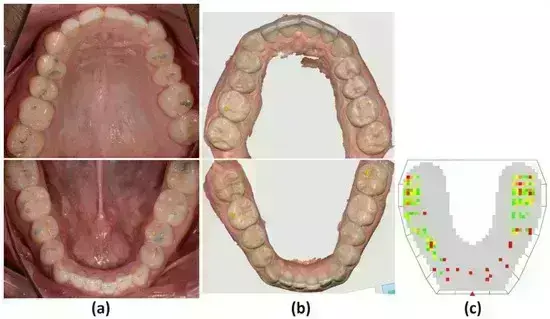- Home
- Medical news & Guidelines
- Anesthesiology
- Cardiology and CTVS
- Critical Care
- Dentistry
- Dermatology
- Diabetes and Endocrinology
- ENT
- Gastroenterology
- Medicine
- Nephrology
- Neurology
- Obstretics-Gynaecology
- Oncology
- Ophthalmology
- Orthopaedics
- Pediatrics-Neonatology
- Psychiatry
- Pulmonology
- Radiology
- Surgery
- Urology
- Laboratory Medicine
- Diet
- Nursing
- Paramedical
- Physiotherapy
- Health news
- Fact Check
- Bone Health Fact Check
- Brain Health Fact Check
- Cancer Related Fact Check
- Child Care Fact Check
- Dental and oral health fact check
- Diabetes and metabolic health fact check
- Diet and Nutrition Fact Check
- Eye and ENT Care Fact Check
- Fitness fact check
- Gut health fact check
- Heart health fact check
- Kidney health fact check
- Medical education fact check
- Men's health fact check
- Respiratory fact check
- Skin and hair care fact check
- Vaccine and Immunization fact check
- Women's health fact check
- AYUSH
- State News
- Andaman and Nicobar Islands
- Andhra Pradesh
- Arunachal Pradesh
- Assam
- Bihar
- Chandigarh
- Chattisgarh
- Dadra and Nagar Haveli
- Daman and Diu
- Delhi
- Goa
- Gujarat
- Haryana
- Himachal Pradesh
- Jammu & Kashmir
- Jharkhand
- Karnataka
- Kerala
- Ladakh
- Lakshadweep
- Madhya Pradesh
- Maharashtra
- Manipur
- Meghalaya
- Mizoram
- Nagaland
- Odisha
- Puducherry
- Punjab
- Rajasthan
- Sikkim
- Tamil Nadu
- Telangana
- Tripura
- Uttar Pradesh
- Uttrakhand
- West Bengal
- Medical Education
- Industry
Articulating paper better than digital devices for occlusional assessment, reveals research

Articulating paper better than digital devices for occlusional assessment reveals research published in the Journal of clinical medicine.
As the demand for digital dentistry constantly increases, digital devices are gradually replacing conventional methods of recording occlusal contacts.OccluSense is a digital occlusion instrument that captures occlusal contact force and time. OccluSense cannot discriminate between contact pressures on incisal edges, occlusal surfaces, cingulums, mesial and distal marginal ridges, fossa, and cusp tips
The study aimed to assess the inter-rater reliability of occlusal contact point detection using 40 μm articulating paper, Medit i700, and OccluSense and compare the occlusal contact distribution using the articulating paper and intraoral scanner. Material and Methods: The study included 25 participants aged 20 to 30 (13 women and 12 men). Photographs of contact points were taken and marked in maximum intercuspal position (MIP), in protrusive and laterotrusive movements, on working and non-working sides using 40 μm articulating paper and digital devices. The Cohen’s Kappa coefficient assessed the inter-rater reliability. The Wilcoxon signed-rank test compared dependent groups, articulating paper, and Medit i700. Results: The Cohen’s Kappa index showed almost perfect agreement was achieved with 40 μm articulating paper. Compared to Medit i700, the 40 μm articulating paper showed an increased mean number of contacts per tooth, except for the third molars. Conclusions: The 40 μm articulating paper has detected more overall contacts than the digital devices, particularly in the posterior areas. An ideal method for registering occlusal contacts has not been established yet.
Reference:
Manziuc, M.-M.; Savu, M.M.; Almăşan, O.; Leucuţa, D.-C.; Tăut, M.; Ifrim, C.; Berindean, D.; Kui, A.; Negucioiu, M.; Buduru, S. Insights into Occlusal Analysis: Articulating Paper versus Digital Devices. J. Clin. Med. 2024, 13, 4506. https://doi.org/10.3390/jcm13154506
Dr. Shravani Dali has completed her BDS from Pravara institute of medical sciences, loni. Following which she extensively worked in the healthcare sector for 2+ years. She has been actively involved in writing blogs in field of health and wellness. Currently she is pursuing her Masters of public health-health administration from Tata institute of social sciences. She can be contacted at editorial@medicaldialogues.in.
Dr Kamal Kant Kohli-MBBS, DTCD- a chest specialist with more than 30 years of practice and a flair for writing clinical articles, Dr Kamal Kant Kohli joined Medical Dialogues as a Chief Editor of Medical News. Besides writing articles, as an editor, he proofreads and verifies all the medical content published on Medical Dialogues including those coming from journals, studies,medical conferences,guidelines etc. Email: drkohli@medicaldialogues.in. Contact no. 011-43720751


